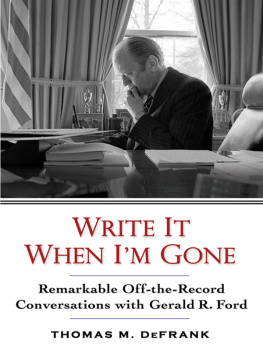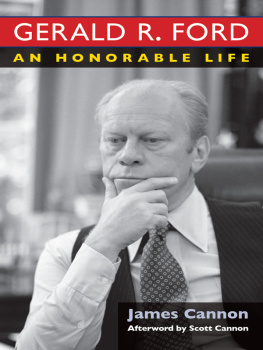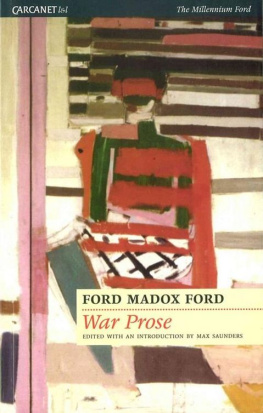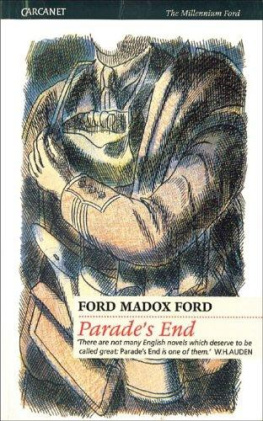A LSO BY T HOMAS M. D E F RANK
WITH JAMES A. BAKER, III
Write It When Im Gone
REMARKABLE OFF-THE-RECORD
CONVERSATIONS WITH GERALD R. FORD
THOMAS M. D E FRANK
G. P. PUTNAMS SONS
New York

G. P. PUTNAMS SONS
Publishers Since 1838
Published by the Penguin Group
Penguin Group (USA) Inc., 375 Hudson Street, New York, New York 10014, USA Penguin Group (Canada), 90 Eglinton Avenue East, Suite 700, Toronto, Ontario M4P 2Y3, Canada (a division of Pearson Penguin Canada Inc.) Penguin Books Ltd, 80 Strand, London WC2R 0RL, England Penguin Ireland, 25 St Stephens Green, Dublin 2, Ireland (a division of Penguin Books Ltd) Penguin Group (Australia), 250 Camberwell Road, Camberwell, Victoria 3124, Australia (a division of Pearson Australia Group Pty Ltd) Penguin Books India Pvt Ltd, 11 Community Centre, Panchsheel Park, New Delhi110 017, India Penguin Group (NZ), 67 Apollo Drive, Rosedale, North Shore 0632, New Zealand (a division of Pearson New Zealand Ltd) Penguin Books (South Africa) (Pty) Ltd, 24 Sturdee Avenue, Rosebank, Johannesburg 2196, South Africa
Penguin Books Ltd, Registered Offices:
80 Strand, London WC2R 0RL, England
Copyright 2007 by Thomas M. DeFrank
All rights reserved. No part of this book may be reproduced, scanned, or distributed in any printed or electronic form without permission. Please do not participate in or encourage piracy of copyrighted materials in violation of the authors rights. Purchase only authorized editions. Published simultaneously in Canada
Library of Congress Cataloging-in-Publication Data
DeFrank, Thomas M.
Write it when Im gone: remarkable off-the-record conversations with
Gerald R. Ford/Thomas M. DeFrank.
p. cm.
Includes index.
ISBN 978-1-1012-0746-8
1. Ford, Gerald R., 19132006. 2. Ford, Gerald R., 19132006Interviews. 3. PresidentsUnited StatesBiography. 4. PresidentsUnited StatesInterviews. 5. United StatesPolitics and government19741977. 6. United StatesPolitics and government19771981. 7. United StatesPolitics and government19811989. 8. United StatesPolitics and government1989. 9. DeFrank, Thomas M. I. Ford, Gerald R., 19132006. II. Title.
E866.D43 2007 2007032750
973.925092dc22
[B]
To my parents, Pete and Lillian,
and to Melanie and Andrew
PROLOGUE
F ROM TIME TO TIME Id covered a few of Gerald R. Fords press conferences when he was House minority leader, but our first genuine encounter was in the fall of 1973, not long after Richard Nixon introduced him to the nation as the 40th vice president.
It wasnt an auspicious beginning, that first interview. Actually, it was a conspicuous disaster.
After a 1968 summer internship at Newsweek and two years as an Army public affairs officer at the Pentagon, Id rejoined Newsweek s Washington bureau in the fall of 1970. For most of 1973, Id been covering the American prisoners of war from Vietnam; I was sent to Clark Air Base in the Philippines in February to cover their dramatic return from Hanoi, and was tracking their remarkable resilience as they coped with the reimmersion challenges of a normal existence after many years of brutal deprivation by their North Vietnamese captors.
Id just returned from a fall vacation in Texas when my bureau chief, the legendary Mel Elfin, informed me I was being assigned to cover Ford. Hed never amounted to much as a backbench House leader, I was told, but Mel and Newsweek s editors had concluded Nixon was finished and that Ford, sooner or later, probably sooner, would be the 38th president. The magazine wanted to have a leg up with the new guy when Nixon resigned or was impeached. I want somebody who knows him and his people, Elfin said. Your job is to live with him until hes president. As a twenty-eight-year-old journeyman, I was ecstatic at my sudden good fortune.
On the surface, the assignment seemed promising. Most political correspondents thought Ford a bit of a dullard, but he also had a reputation for being generous with reporters. Columnist Martin Schram, then a rookie from Newsday assigned to Sunday duty, once asked him for the name of an aide he could bother at home on the weekends. Ford gave him his own home phone number in Alexandria and encouraged him to call anytime. Unlike some of his predecessors, not to mention successors, he liked reporters and was always a grown-up about their often irksome questioning.
This day, however, I promptly landed myself squarely on Fords enemies list.
It was Media Day for the vice president designate. Hed been scheduled for wall-to-wall interviews. Reporters were being shuffled rapid-fire through his congressional office like visiting constituents. Id drawn an afternoon slot. Several down, several more to go.
Ford was wearing a frumpy brown business suit, the sort that reminded me of those Grand Rapids jokes about old Dutch guys wearing wooden shoes. Although he greeted me cordially enough, it was obvious he had more pressing items on his mind. He didnt like my questions, which were about Nixon and Watergate. He kept puffing on his pipe and avoiding eye contact as he delivered a string of canned or monosyllabic answers. Plainly, he wasnt enjoying himself, or my company. After each question, hed glance at his wristwatch.
The vibes were horrible. Mercifully for both of us, after fifteen minutes of nonanswers I was given the bums rush out the door. For my taste, Ford had just validated H. L. Menckens celebrated advice: the only way to look on a politician is down.
I walked out of his office in a huge funk. It wasnt just that as a citizen I had come away monumentally unimpressed with the guy my bosses were certain would be in the Oval Office before long. My angst was way more selfish than that. Jerry Ford was going to be the next president of the free world, and he and I had bombed with each other. That would be my problem, of course, certainly not his. Id just been handed a plum assignment with a guaranteed ticket to a prized White House posting, and after fifteen minutes on the beat I was already in the Dumpster.














